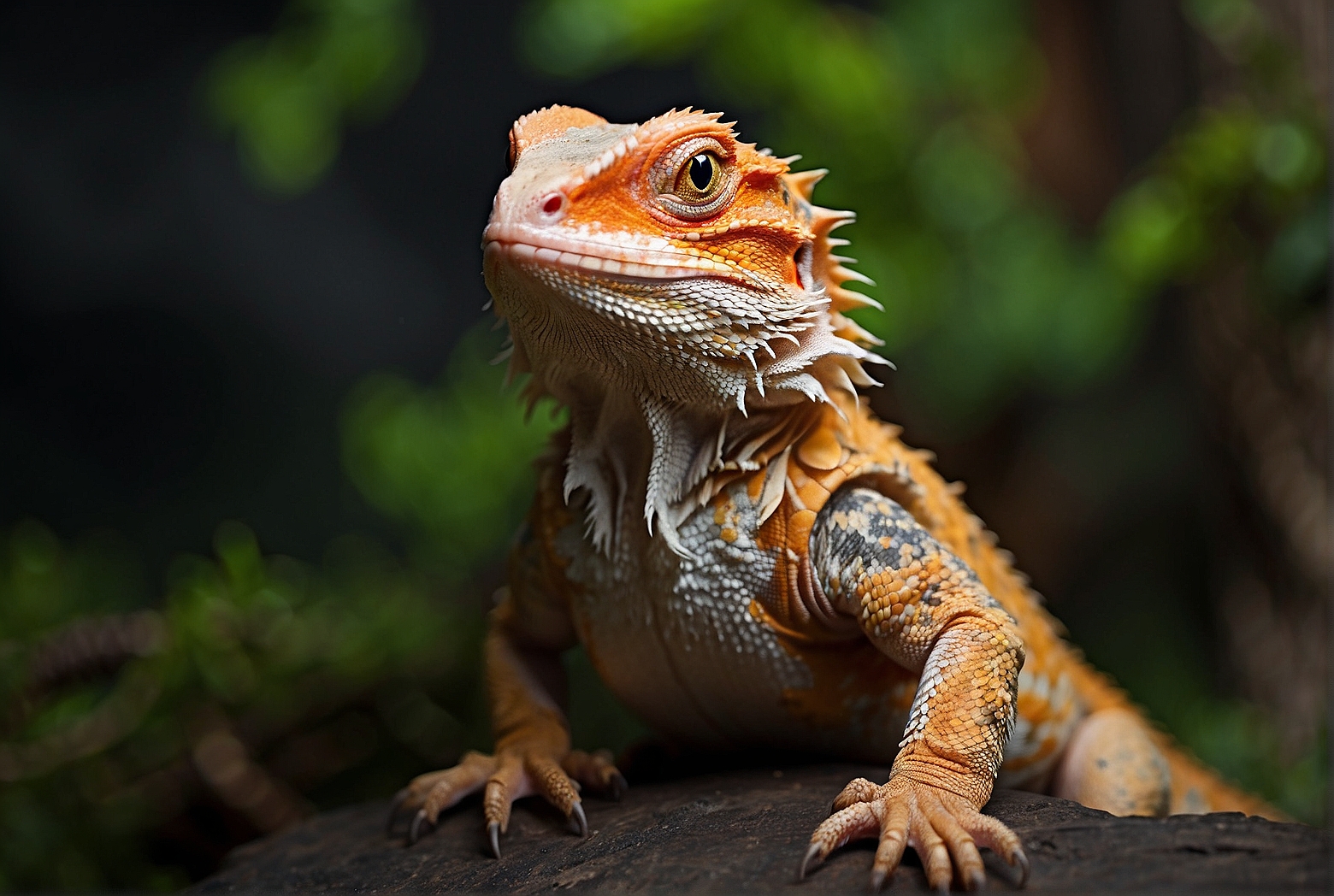Have you ever wondered what problems bearded dragons can have? Well, in this article, we will explore the various issues that these fascinating reptiles may face. From potential health concerns to common behavioral problems, we’ll shed light on the challenges that bearded dragons can encounter in their lives. So, if you’re a proud owner or simply curious about these unique creatures, keep reading to learn more about what problems can arise for bearded dragons.
Metabolic Bone Disease
Metabolic Bone Disease (MBD) is a common health issue that affects bearded dragons. It is primarily caused by a calcium and vitamin D deficiency in their diet. Bearded dragons require a balance of calcium, phosphorus, and vitamin D to maintain healthy bones and overall skeletal development. Without these essential nutrients, their bones can become weak, brittle, and deformed.
Causes of Metabolic Bone Disease
The main cause of MBD in bearded dragons is an inadequate intake of calcium and vitamin D. This can occur due to a diet lacking in the necessary nutrients, improper lighting or UVB exposure, or an inability to effectively absorb and metabolize calcium. Another contributing factor is a high phosphorus intake, which can interfere with calcium absorption and exacerbate the deficiency.
Symptoms of Metabolic Bone Disease
Some common signs of MBD in bearded dragons include soft or rubbery jaw bones, swollen limbs, a wobbly or unsteady gait, and difficulty in using their rear legs. They may also develop a characteristic humped or bent spine and exhibit decreased appetite. MBD can lead to severe deformities, fractures, and even paralysis if left untreated.
Prevention and Treatment
Preventing MBD involves providing a well-balanced diet that includes calcium-rich foods such as leafy greens, calcium supplements, and a source of UVB lighting. It is crucial to ensure that the calcium to phosphorus ratio is appropriate in the dragon’s diet. Regular veterinary check-ups are essential to identify any potential deficiencies and to monitor the dragon’s overall bone health.
If diagnosed with MBD, treatment usually involves calcium and vitamin D supplementation, along with adjustments to the dragon’s diet. In severe cases, additional medical interventions may be necessary. However, it is important to note that prevention is always preferable over treatment, as MBD can lead to permanent damage if not addressed promptly.
Respiratory Infections
Respiratory infections are another common health issue in bearded dragons and can range from mild to severe. These infections typically occur due to poor husbandry practices, such as inadequate temperatures, insufficient humidity levels, or unclean enclosures, which can contribute to the growth of bacteria or fungi.
Causes of Respiratory Infections
Respiratory infections commonly occur when bearded dragons are exposed to constant drafts, extreme temperature fluctuations, or prolonged periods of high humidity. These conditions can weaken their immune system, making them more susceptible to respiratory pathogens. Additionally, overcrowded or dirty enclosures can harbor bacteria or fungi that can cause infections.
Symptoms of Respiratory Infections
Signs of a respiratory infection in a bearded dragon may include labored or noisy breathing, nasal discharge, coughing, wheezing, lethargy, lack of appetite, or open-mouth breathing. The dragon may exhibit a decreased ability to bask or regulate its body temperature, as well as an increased need for rest.
Prevention and Treatment
To prevent respiratory infections, it is crucial to maintain proper temperatures and humidity levels in the dragon’s enclosure. Regular cleaning and disinfection of the habitat, including substrates and decor, can also help reduce the risk of infection. Ensuring good ventilation and minimizing exposure to drafts can further promote respiratory health.
If a respiratory infection is suspected, seeking veterinary care is essential. Treatment often involves antibiotics or antifungal medications, along with supportive care to address any underlying causes. Encouraging the dragon to stay hydrated and providing a warm and humid environment can aid in their recovery.
Parasites
Parasitic infections are a common health concern in bearded dragons. They can be divided into two categories: internal parasites and external parasites.
Internal Parasites in Bearded Dragons
Internal parasites are commonly found in the gastrointestinal tract of bearded dragons. These parasites, such as pinworms and coccidia, can cause a range of symptoms, including diarrhea, weight loss, poor appetite, and overall weakness. Left untreated, internal parasites can lead to severe health issues and even death.
External Parasites in Bearded Dragons
External parasites, such as mites or ticks, can also affect bearded dragons. These tiny pests can cause itching, skin irritation, and in severe cases, even anemia. It is important to regularly inspect your dragon for any signs of external parasites and take immediate action if they are detected.
Symptoms of Parasitic Infections
Signs of parasitic infections in bearded dragons can vary depending on the type of parasite involved. Some common symptoms include changes in appetite, weight loss, diarrhea, lethargy, abnormal feces, or visible parasites on the dragon’s body. It is crucial to monitor your dragon’s behavior and appearance to identify any potential parasitic infections.
Prevention and Treatment
Prevention is key when it comes to parasitic infections. Keeping your dragon’s enclosure clean and regularly sanitizing their habitat can help minimize the risk of exposure to parasites. Additionally, implementing a regular deworming schedule and practicing good hygiene, such as washing hands before and after handling your dragon, can further prevent parasite transmission.
If a parasitic infection is suspected, a veterinarian should be consulted for proper diagnosis and treatment. Treatment may involve antiparasitic medications, along with supportive care to address any underlying health issues. Regular fecal testing and preventive deworming can also help ensure your dragon’s long-term health.
[Continued in Part 2]
